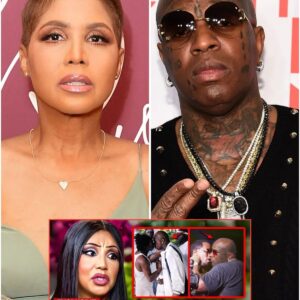
In a recent episode of “The Pat McAfee Show,” ESPN host Pat McAfee found himself at the center of a controversy after referring to WNBA star Caitlin Clark as a “White B-” while discussing her significant impact on the league. The comment, made on Monday, sparked a wave of backlash, with many calling for ESPN to suspend or even fire McAfee.
McAfee’s comment was part of a discussion about the rising popularity and success of the WNBA, particularly focusing on the influence of the current rookie class. McAfee suggested that the media’s emphasis on the entire rookie class was misplaced and that Clark, a standout player for the Indiana Fever, was the primary catalyst for the league’s recent success.

“There seems to be this notion that this whole evolution of success and popularity in the WNBA is because of this entire rookie class. I think there’s a chance Chennedy Carter thinks [Sky rookie forward] Angel Reese deserves all this credit. The media talks about how it’s the entire class,” McAfee said on his show. “I would like the media people that continue to say, ‘This rookie class, this rookie class, this rookie class.’ Nah, just call it for what it is — there’s one white B- for the Indiana team who is a superstar.”
In response to the uproar, McAfee issued a public apology, admitting his mistake and expressing regret for his words. He revealed that he had reached out to Caitlin Clark through the Indiana Fever’s PR department to personally apologize.
“Obviously that’s a massive [expletive]-up on my end. I apologize for that. I did reach out to Caitlin Clark through the Fever (public relations), sent an apology and then got a message back that she said it was all good. No blood,” McAfee explained. “We move forward. And she appreciates us reaching out and apologizing. So that obviously makes me feel a little bit better. But to the people that got pissed off yesterday and offended, I understand. I learned a lot.”
Clark’s response to the situation was notably gracious. According to McAfee, Clark conveyed that she was not harboring any ill will and appreciated the gesture of the apology. Her reaction exemplified maturity and an understanding of the sometimes volatile nature of public commentary.

The incident raises questions about accountability and professionalism in sports media. While McAfee’s apology and Clark’s acceptance may close the matter personally between them, it remains to be seen whether ESPN will take further action. The network’s decision will likely reflect its stance on maintaining respectful and professional discourse among its commentators.
This episode highlights the broader issue of language and respect in media, particularly concerning how female athletes are discussed. Clark, an emerging superstar in the WNBA, has consistently demonstrated excellence on the court, and it’s crucial that commentary about her and her peers maintains a level of respect and recognition befitting their achievements.
For now, the focus shifts back to Caitlin Clark and her promising career in the WNBA. As for McAfee, this incident serves as a reminder of the impact of words and the importance of maintaining a respectful dialogue in sports media. The hope is that both individuals can move forward positively, with lessons learned and an emphasis on fostering a more respectful and supportive environment in the sports community.
News
Whoopi Goldberg Ejected from “The View” After Defending Megan Rapinoe
In a dramatic and unexpected development, Whoopi Goldberg, a co-host of “The View,” was abruptly removed from the show after vocally supporting Megan Rapinoe during a heated discussion. Goldberg, renowned for her candid and forthright commentary, passionately defended Rapinoe amid…
Riley Gaines Awarded “Woman of the Year” Over Megan Rapinoe
Riley Gaines Awarded “Woman of the Year”: A Controversial Decision In a surprising turn of events, Riley Gaines, a distinguished collegiate swimmer, has been awarded the prestigious “Woman of the Year” title, surpassing the well-known soccer star Megan Rapinoe. This…
WNBA Opens Investigation: Star Caitlin Clark Was “Played Unfairly”?
WNBA Opens Investigation: Star Caitlin Clark Was “Played Unfairly”? In a surprising and significant move, the Women’s National Basketball Association (WNBA) has announced an official investigation into claims that star player Caitlin Clark was “played unfairly” in recent games. This…
Surprise! NCAA strips Lia Thomas of her medal and gives it to Riley Gaines?
In a groundbreaking and decisive move, the National Collegiate Athletic Association (NCAA) announced the complete transfer of all medals awarded to Lia Thomas to fellow swimmer Riley Gaines. This unprecedented decision marks a significant shift in the ongoing discourse surrounding…
Toni Braxton EXPOSES Why She Could Never Marry Birdman
Toni Braxton Calls it Quits: Birdman’s Alleged Secret Life Leads to Breakup Toni Braxton fans were shocked earlier this year when news broke of her split from rapper Birdman. While rumors of a fairytale wedding had swirled for years, Braxton…
Diddy Is FINISHED After SHOCKING Videos Expose Him With Justin Bieber and Jaden Smith
Diddy Hit With Shocking Allegations: Mentor or Manipulator? Sean Combs, better known as Diddy, is no stranger to controversy. However, recent rumors swirling around his past mentorship of Justin Bieber and Jaden Smith have taken things to a new level….
End of content
No more pages to load












